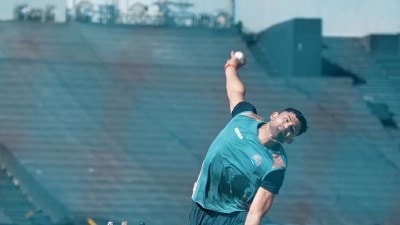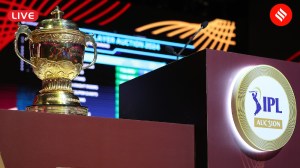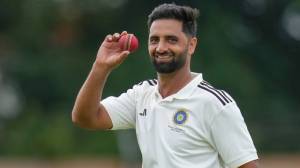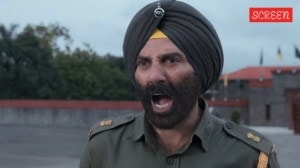Budget 2024: What is ‘Viksit Bharat’, a govt vision to be realised by 2047?
As Union Finance Minister Nirmala Sitharaman presented the interim Budget on Thursday, she said the government's vision for ‘Viksit Bharat’ is that of a “prosperous Bharat in harmony with nature, with modern infrastructure, and providing opportunities for all citizens and all regions to reach their potential”.
 Union Minister for Finance Nirmala Sitharaman addresses the post-Budget press conference with her team in New Delhi on Thursday. (Express Photo by Tashi Tobgyal)
Union Minister for Finance Nirmala Sitharaman addresses the post-Budget press conference with her team in New Delhi on Thursday. (Express Photo by Tashi Tobgyal)While presenting the interim Budget 2024, Union Finance Minister Nirmala Sitharaman Thursday mentioned ‘Viksit Bharat’ , a vision the government aims to realise by 2047 — the year India completes 100 years of independence.
So, what is this vision of ‘Viksit Bharat’?
Last year, Prime Minister Narendra Modi talked about his vision of making India ‘Viksit Bharat’ — the term means ‘developed India’.
As Sitharaman presented the interim Budget today, she said the government’s vision for ‘Viksit Bharat’ is that of a “prosperous Bharat in harmony with nature, with modern infrastructure, and providing opportunities for all citizens and all regions to reach their potential”.
As she laid out the plan to achieve the ‘Viksit Bharat’ target, Sitharaman said, “With confidence arising from strong and exemplary track-record of performance and progress earning ‘Sabka Vishwas’, the next five years will be years of unprecedented development, and golden moments to realise the dream of developed India @ 2047.”
She also laid emphasis on the “trinity of demography, democracy and diversity” backed by ‘Sabka Prayas’, which Sitharaman said, has the potential to fulfil aspirations of every Indian.
Speaking about social justice being an important factor to realise the goal, she said, “Our Government is working with an approach to development that is all-round, all-pervasive and all-inclusive. It covers all castes and people at all levels. We are working to make India a ‘Viksit Bharat’ by 2047.” To achieve this goal of ‘Viksit Bharat’, she said there is a need to improve people’s capability and empower them.
“Previously, social justice was mostly a political slogan. For our Government, social justice is an effective and necessary governance model. The saturation approach of covering all eligible people is the true and comprehensive achievement of social justice. This is secularism in action, reduces corruption, and prevents nepotism (भाई-भतीजावाद). There is transparency and assurance that benefits are delivered to all eligible people. The resources are distributed fairly. All, regardless of their social standing, get access to opportunities. We are addressing systemic inequalities that had plagued our society. We focus on outcomes and not on outlays so that the socio-economic transformation is achieved,” she said.
Sitharaman added: “As our Prime Minister firmly believes, we need to focus on four major castes. They are, ‘Garib’ (Poor), ‘Mahilayen’ (Women), ‘Yuva’ (Youth) and ‘Annadata’ (Farmer). Their needs, their aspirations, and their welfare are our highest priority. The country progresses, when they progress. All four require and receive government support in their quest to better their lives. Their empowerment and well-being will drive the country forward.”
- 01
- 02
- 03
- 04
- 05





























